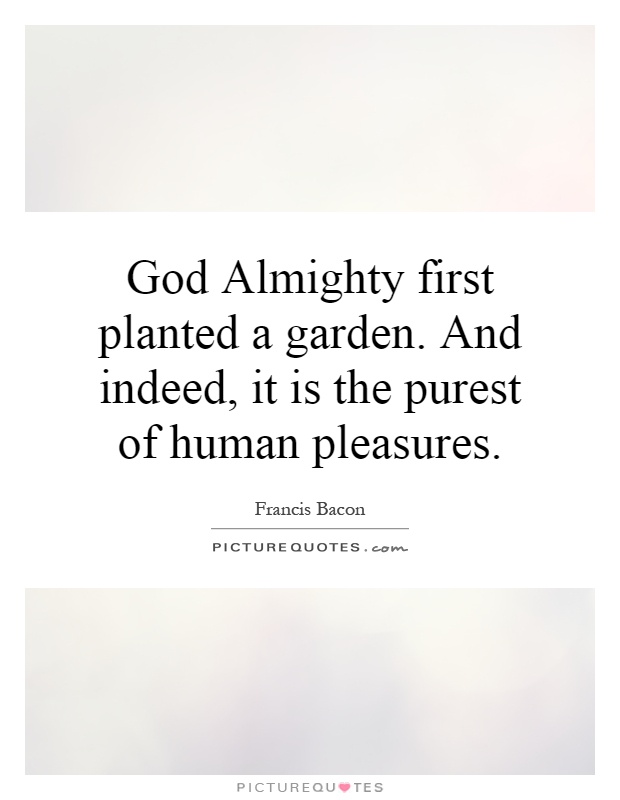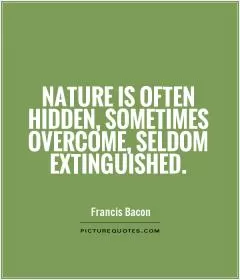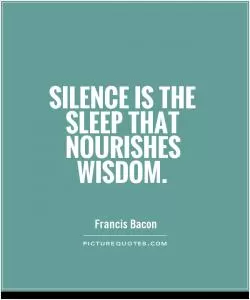God Almighty first planted a garden. And indeed, it is the purest of human pleasures

God Almighty first planted a garden. And indeed, it is the purest of human pleasures
Francis Bacon, a renowned philosopher, statesman, and scientist, once famously said, "God Almighty first planted a garden. And indeed, it is the purest of human pleasures." This profound statement reflects Bacon's deep appreciation for the beauty and tranquility that can be found in nature, particularly in a well-tended garden.Bacon's words suggest that gardens are not just physical spaces filled with plants and flowers, but rather they are sacred places that connect us to something greater than ourselves. In many religious and spiritual traditions, gardens are seen as symbols of paradise or the divine. They are places of peace, harmony, and beauty, where one can escape the chaos and noise of the world and find solace in the quietude of nature.
For Bacon, the act of gardening itself is a form of communion with the divine. By tending to the plants, nurturing them, and watching them grow and flourish, we are participating in the creative process of God. In this sense, gardening becomes a spiritual practice, a way of connecting with the natural world and experiencing a sense of awe and wonder at the beauty and complexity of life.
Moreover, Bacon's statement also speaks to the idea that gardening is a source of pure pleasure for humans. There is something deeply satisfying and fulfilling about working with the earth, planting seeds, and watching them grow into vibrant, blooming flowers or bountiful fruits and vegetables. The act of gardening can be meditative and therapeutic, providing a sense of purpose and accomplishment as we witness the fruits of our labor.












 Friendship Quotes
Friendship Quotes Love Quotes
Love Quotes Life Quotes
Life Quotes Funny Quotes
Funny Quotes Motivational Quotes
Motivational Quotes Inspirational Quotes
Inspirational Quotes